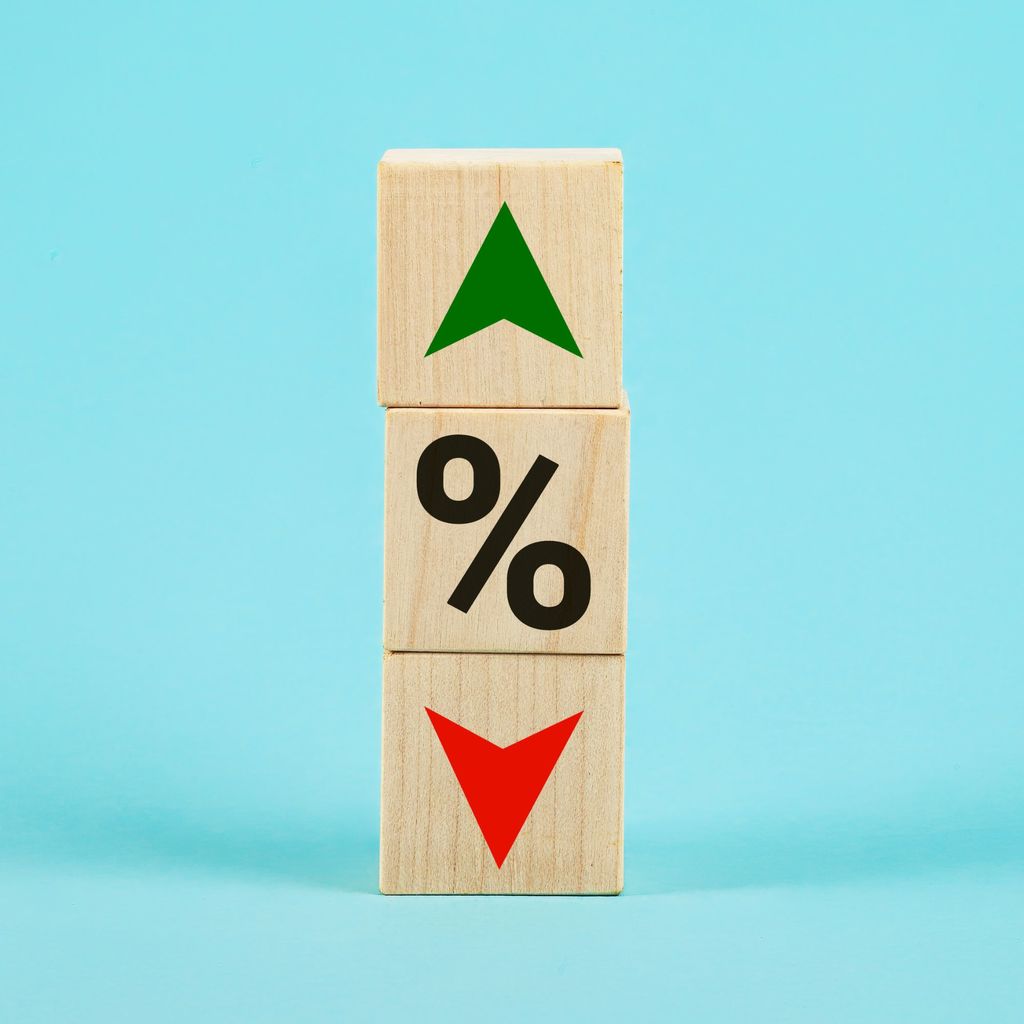
The average rate on 30-year fixed mortgages retreated to 7.41% this week, down from 7.55% the previous week, according to Bankrate’s weekly national survey of large lenders.
The recent reprieve could signal a prolonged drop in mortgage rates, housing economists say. The average rate on 30-year home loans in October topped 8%, but that’s changing because of a number of factors, including a slowing job market and signs that the Federal Reserve’s ongoing war on inflation is working.
“Part of it is the Federal Reserve is pausing on interest rate hikes,” says Lisa Sturtevant, chief economist at Bright MLS, a real estate listing service in the Mid-Atlantic region. “Of course, mortgage rates are affected by things other than what the Fed does. For example, mortgage applications are down, and lenders are competing for a shrinking pool of applicants.”
Meanwhile, yields on 10-year Treasury bonds, an informal benchmark for 30-year mortgage rates, have dropped from 5% to less than 4.3% in recent weeks.
The Fed doesn’t directly control mortgage rates, but it plays a pivotal role. The central bank sets policy that affects the cost of home loans. At the conclusion of its latest meeting on Nov. 1, the Federal Open Markets Committee decided to leave rates unchanged. Now, economists say, it appears that the central bank is done raising rates.
What happened to mortgage rates this week
The 30-year fixed mortgages in this week’s survey had an average total of 0.33 discount and origination points.
Over the past 52 weeks, the benchmark 30-year fixed-rate mortgage averaged 6.96%. A year ago, the 30-year fixed-rate mortgage was 6.78%. Four weeks ago, that rate was 7.95%. The 30-year fixed-rate average for this week is 1.14 percentage points higher than the 52-week low of 6.27%.
As for other loans:
—The 15-year fixed-rate mortgage was 6.78%, down from 6.85% from a week ago.
—The 5/6 adjustable-rate mortgage (ARM) was 7.34%, down from 7.42% a week ago.
—The 30-year fixed-rate jumbo mortgage was 7.4%, down from 7.52% a week ago.
How mortgage rates affect home affordability
The national median family income for 2023 is $96,300, according to the U.S. Department of Housing and Urban Development, and the median price of an existing home sold in October 2023 was $391,800, according to the National Association of Realtors. Based on a 20% down payment and a mortgage rate of 7.41%, the monthly payment of $2,172 amounts to 27% of the typical family’s monthly income.
The sharp rise in mortgage rates over the past two years has squeezed affordability and sparked a slowdown in home sales. First-time buyers are especially challenged by this market. Home prices haven’t fallen significantly, and values are unlikely to decline, given the shortage of homes for sale.
“Higher mortgage rates have a dual impact on the housing market: reducing affordability for buyers and strengthening the rate lock-in for sellers,” says Odeta Kushi, deputy chief economist at First American. “The combination of reduced affordability and increased strength of the rate lock-in effect is likely to continue to suppress home sales because you can’t buy what’s not for sale, even if you can afford it.”
Reflecting the affordability squeeze, the median household income for homebuyers jumped to $107,000 in 2023 from $88,000 last year, according to the National Association of Realtors’ 2023 Profile of Home Buyers and Sellers.
Will mortgage rates go down?
Economists expected to see mortgage rates decrease by the end of 2023, but the strength of the U.S. economy has thrown a wrinkle into those predictions. Now, though, things finally seem to be cooling, especially 10-year Treasury yields.
Lawrence Yun, chief economist at the National Association of Realtors, expects mortgage rates to fall below 7% during the winter months. “I believe consumer price inflation will be much lower, and that will allow the Federal Reserve to cut interest rates,” says Yun.
Mortgage rates are also chained to inflation, a metric the Fed has been moving to control. At its September and November meetings, the central bank opted to keep rates unchanged. While the Fed doesn’t directly set fixed mortgage rates, it does set the tone of the interest-rate environment — and as the central bank has boosted its policy rate from zero in early 2022 to a range of 5.25% to 5.5% now, mortgage rates have followed suit.
“There is room for mortgage rates to fall further,” Sturtevant says. “The gap between the 10-year Treasury yield and the 30-year fixed rate mortgage rate is historically around 180 basis points. While the gap has narrowed somewhat, the 30-year mortgage rate remains 280 basis points higher than the bond yield.”
Methodology
The Bankrate.com national survey of large lenders is conducted weekly. To conduct the National Average survey, Bankrate obtains rate information from the 10 largest banks and thrifts in 10 large U.S. markets. In the Bankrate.com national survey, our Market Analysis team gathers rates and/or yields on banking deposits, loans and mortgages. We’ve conducted this survey in the same manner for more than 30 years, and because it’s consistently done the way it is, it gives an accurate national apples-to-apples comparison. Our rates differ from other national surveys, in particular Freddie Mac’s weekly published rates. Each week Freddie Mac surveys lenders on the rates and points based on first-lien prime conventional conforming home purchase mortgages with a loan-to-value of 80%. “Lenders surveyed each week are a mix of lender types — thrifts, credit unions, commercial banks and mortgage lending companies — is roughly proportional to the level of mortgage business that each type commands nationwide,” according to Freddie Mac.
(Visit Bankrate online at bankrate.com.)
News Source: Bankrate.com
